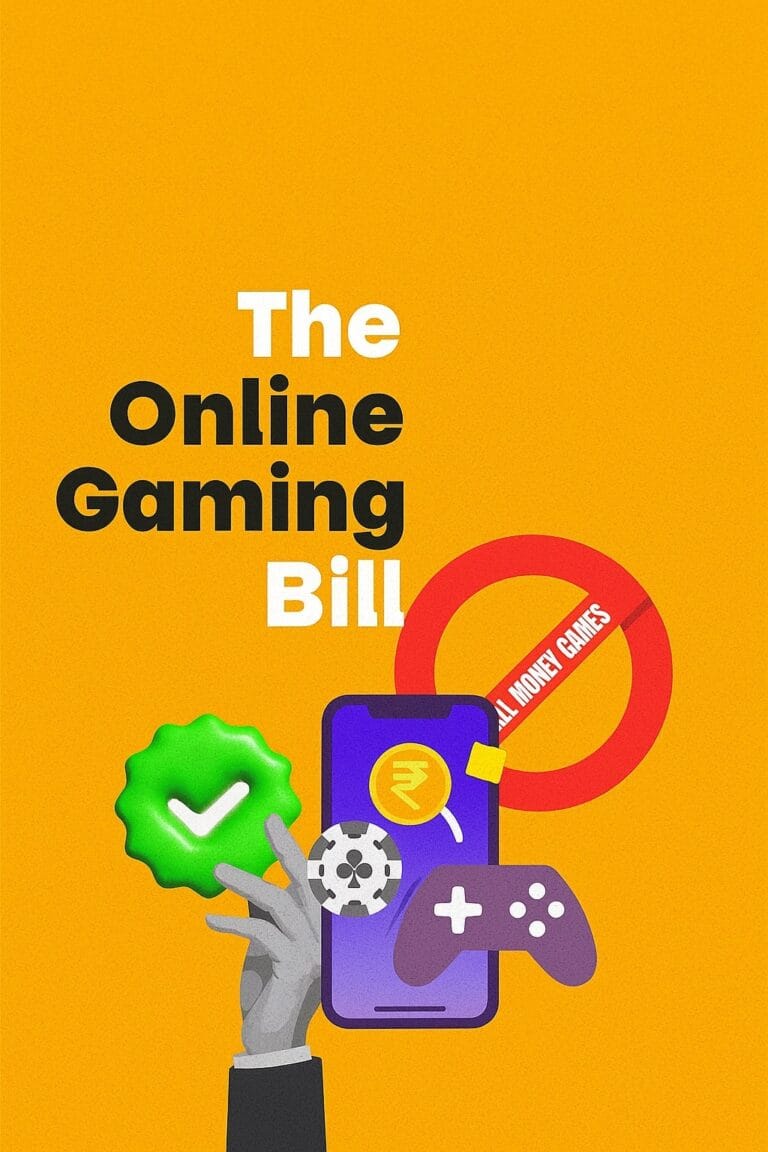
Background
Now an Act of Parliament having received the requisite executive approval in August 2025, the Promotion and Regulation of Online Gaming Act 2025, represents a key development in regulating digital gaming in the country. Passing the Act of Parliament has quite the record, the Lok Sabha completing the task on August 20, 2025, in a mere 7 minutes, and the Rajya Sabha soon after. The Government upon notification of the Act on August 22, 2025, has established a framework for encouraging legitimate gaming and for the first time in the country, expunging the online money gaming from the country.
Applicability
The Online Gaming Act of 2025 walks the unprecedented line of legal authority by covering all aspects of the digital gaming network of India.
This legislative framework ensures no entity in the gaming ecosystem can escape regulatory oversight, establishing uniform standards nationwide.
Purpose of the Bill
The Act undertakes a dual-phased approach by ‘de-fending’ the citizens from malpractices while promoting the gaming industry.
Important Definitions
The Act provides precise definitions forming the foundation of its regulatory framework as per Section 2:
Compliance Requirements under the Bill
No person shall offer, aid, abet, induce or otherwise indulge or engage in the offering of online money game and online money gaming service.
No person shall make, cause to be made, aid, abet, induce, or otherwise be involved in the making or causing to be made any advertisement, in any media including electronic means of communication, which directly or indirectly promotes or induces any person to play any online money game or indulge in any activity promoting online money gaming.
No bank, financial institution, or any other person facilitating financial transactions or authorisation of funds shall engage in, permit, aid, abet, induce or otherwise facilitate any transaction or authorisation of funds towards payment for any online money gaming service.
Every person shall comply with any direction issued by the Central Government in relation to online money gaming services.
Penalties and Punishments
The Act establishes one of the strictest penalty regimes globally for gaming violations, making offenses cognizable and non-bailable:
Offense | Section | Imprisonment | Fine |
Offering Online Money Gaming Services | Section 9(1) vs Section 5 | Up to 3 years | Up to ₹1 crore |
Advertisement of Money Games | Section 9(2) vs Section 6 | Up to 2 years | Up to ₹50 lakh |
Financial Transaction Facilitation | Section 9(3) vs Section 7 | Up to 3 years | Up to ₹1 crore |
Repeat Offense – Gaming Services | Section 9(4) | 3-5 years (mandatory minimum) | ₹1-2 crore (mandatory minimum) |
Repeat Offense – Advertisement | Section 9(5) | 2-3 years (mandatory minimum) | ₹50 lakh-1 crore (mandatory minimum) |
Authority Non-compliance | Section 12(1) | Not specified | Up to ₹10 lakh |
Additional Penalties:
Penalty under Information Technology
In case of failure to comply with the provisions of section 5, section 6 and section 7, notwithstanding anything contained in this Act or in section 69A of the Information Technology Act, 2000, any information generated, transmitted, received or hosted in any computer resource in relation to online money gaming service shall be liable to be blocked for access by the public in such manner as provided in that Act.
Impact on the Indian Economy
India’s gaming industry is radically changed by the Act, which promises long-term sustainable growth while causing major short-term economic disruption.
Current Economic Obstacles:
Market Restructuring:
Long-Term Economic Change:
Sectoral Benefits:
Impact on the Region:
While cities like Bangalore, Mumbai, and Hyderabad need to adjust to shifting employment trends, technology hubs like Karnataka, Maharashtra, and Telangana face immediate economic adjustment challenges. State governments lose a lot of money from banned gaming in the form of GST and other taxes.
Economists predict that as the industry transitions to sustainable, innovation-focused models, the Act’s long-term advantages may outweigh any short-term disruptions. This
marks a fundamental shift from revenue-maximizing to socially responsible gaming.
Disclaimer: The information contained in this Article is intended solely for personal non-commercial use of the user who accepts full responsibility of its use. The information in the article is general in nature and should not be considered to be legal, tax, accounting, consulting or any other professional advice. We make no representation or warranty of any kind, express or implied regarding the accuracy, adequacy, reliability or completeness of any information on our page/article.